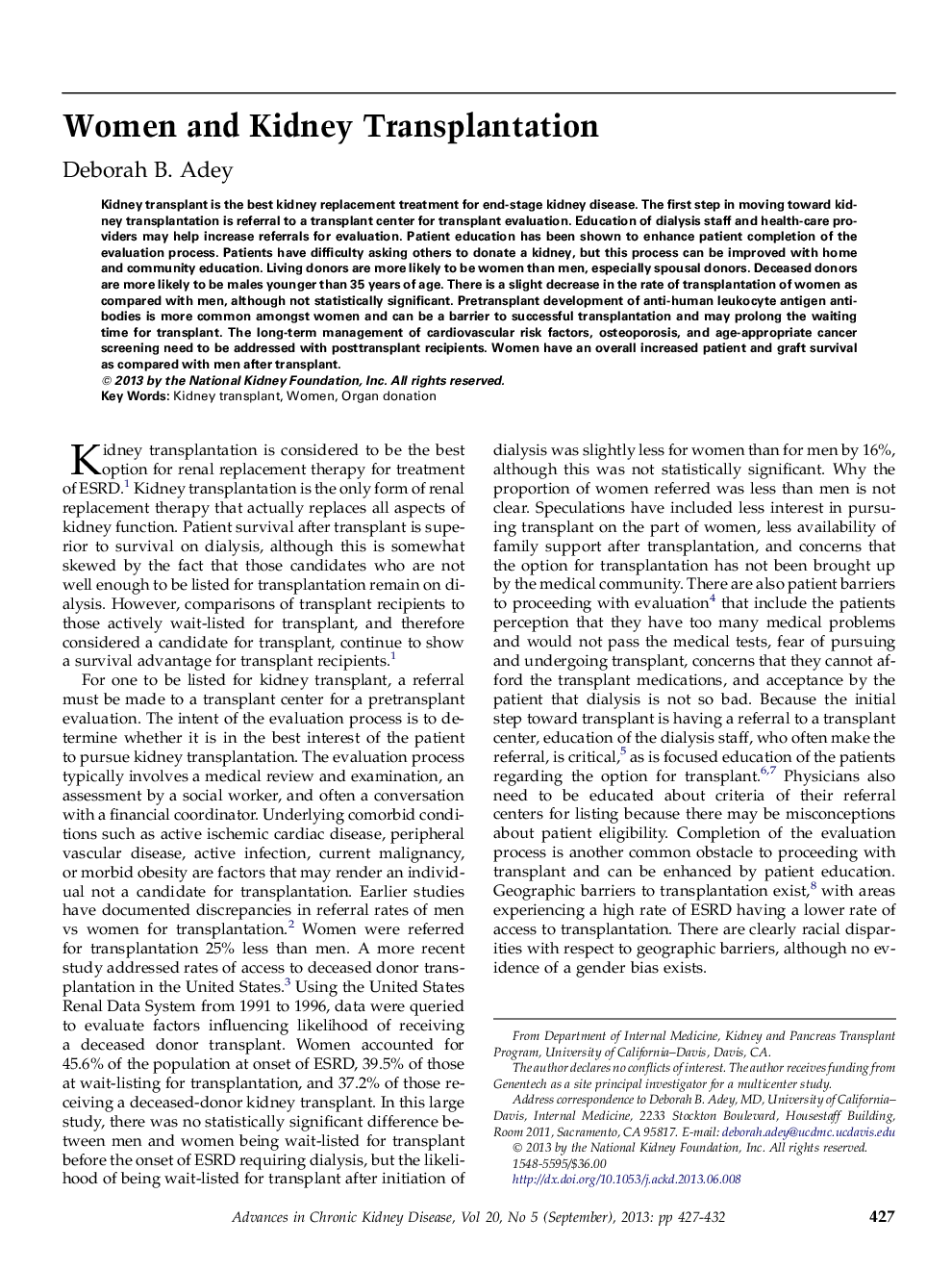| Article ID | Journal | Published Year | Pages | File Type |
|---|---|---|---|---|
| 3846530 | Advances in Chronic Kidney Disease | 2013 | 6 Pages |
Abstract
Kidney transplant is the best kidney replacement treatment for end-stage kidney disease. The first step in moving toward kidney transplantation is referral to a transplant center for transplant evaluation. Education of dialysis staff and health-care providers may help increase referrals for evaluation. Patient education has been shown to enhance patient completion of the evaluation process. Patients have difficulty asking others to donate a kidney, but this process can be improved with home and community education. Living donors are more likely to be women than men, especially spousal donors. Deceased donors are more likely to be males younger than 35 years of age. There is a slight decrease in the rate of transplantation of women as compared with men, although not statistically significant. Pretransplant development of anti-human leukocyte antigen antibodies is more common amongst women and can be a barrier to successful transplantation and may prolong the waiting time for transplant. The long-term management of cardiovascular risk factors, osteoporosis, and age-appropriate cancer screening need to be addressed with posttransplant recipients. Women have an overall increased patient and graft survival as compared with men after transplant.
Keywords
Related Topics
Health Sciences
Medicine and Dentistry
Nephrology
Authors
Deborah B. Adey,
